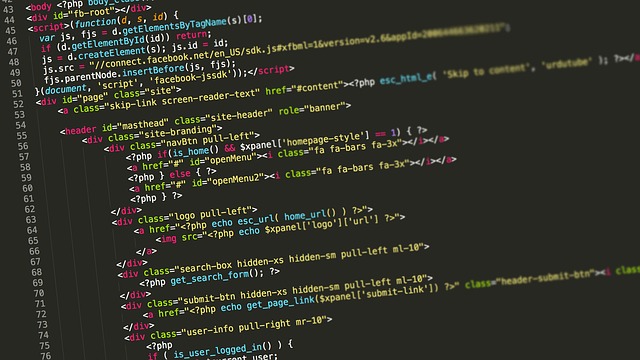On October 13, Annette Vee presented “Coding for Everyone: What Does it Mean to Call Computer Programming a Literacy?” Hosted by the department of Writing, Rhetoric, and Discourse, the audience for this event included undergraduate students, graduate students, and faculty from both WRD and NMS, as well as students and faculty from fields like Computer Science and English. This event was especially relevant to students in Sarah Read’s WRD 500: Proseminar in WRD, who read and discussed Vee’s article “Understanding Computer Programming as a Literacy” in their ongoing conversations about literacy.
Where does coding fit into literacy?
Vee began by showing “What Most Schools Don’t Teach,” a promotional video from the nonprofit code.org, which advocates for teaching coding in US schools. She followed up with the overarching question, “What does it mean to talk about coding as a literacy?” This two-part introduction set up the argument of Vee’s talk: code is relevant in many areas of our lives, and diversifying those who are able to use it will keep coding vital, or “weird.”
As the graphic below indicates, one underrepresented group—female coders—is on the rapid decline. Increasing the diversity of the pool of coders, Vee claimed, makes it more likely that code will be used for creative or problem-solving purposes—not just for corporate profit-making.

The bulk of Vee’s discussion established the historical parallels between mass textual literacy and the computational literacy involved in programming. She emphasized the “rhetorical malleability” of literacy as its uses and modes are repurposed over time. Just as reading and writing evolved from elite skills to industrial necessities to personal essentials, Vee asserted that programming is going through the same kind of evolution.
What does this mean?
During the question and answer portion of the presentation, Vee explained that we can, in Douglas Rushkoff’s words, “program or be programmed.” This notion continued into the interactive portion of Vee’s presentation, when attendees were invited to experiment with coding by using the love letter generator, experiencing what it means to think of coding as a literacy.
Annette Vee is an Assistant Professor in the English department at the University of Pittsburgh, where she teaches undergraduate courses in literacy, composition, and technology. Her research focuses on the spread of computer programming as a literacy. Her book, Coding Literacy: How Computer Programming is Changing the Terms of Writing, will be released in the Fall of 2016.
